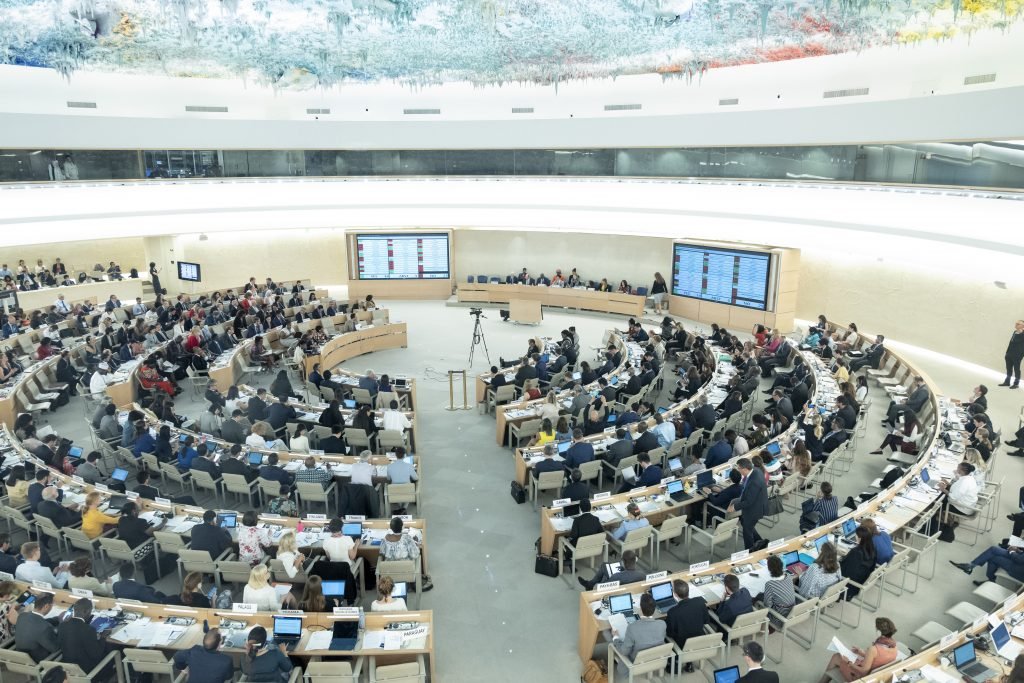Geneva, 27 September 2022 (TDI): Human Rights Council (HRC) of the United Nations (UN) held its annual discussion on the integration of a gender perspective. The discussion mainly focused on overcoming barriers related to gender to ensure freedom of expression and opinion.
#HRC51 | The Human Rights Council held its annual discussion on the integration of a gender perspective, focusing on overcoming gender-based barriers to freedom of opinion and expression.
READ @UNGeneva‘s meeting summary ➡️https://t.co/qLDQSbnlRR pic.twitter.com/J8F0Cdfhuq
— UN Human Rights Council 📍 #HRC51 (@UN_HRC) September 26, 2022
Moreover, the general discussion under agenda 4 on human rights issues was also discussed in the session. The annual discussion included, Peggy Hicks, Director of the Thematic Engagement, Special Procedures, and Right to Development Division of the Office of the High Commissioner for Human Rights.
Director Hicks said that “Freedom of opinion and expression was essential for the protection of every human right, the realization of achieving this right was essential for achieving gender equality.”
She further highlighted new and evolving threats toward women and girls who spoke out in defence of their rights. During the session, the Director also urged to achieve gender equality.
However, the measures for achieving this must include the removal of repressive legislation. Also, women’s rights in school and education must be pondered upon, she stressed.
Also Read: Gender Equality in UN
Discussion of the meeting
Apart from this, Irene Khan, Special Rapporteur on freedom of opinion and expression, said during the discussion that the “Internet had become the new battleground in the struggle for women’s rights, amplifying the opportunities for women to access information and express themselves, but also creating new risks of repression and inequality.
There was a clear link between the root causes of gender inequality and the persistence of gendered censorship. Governments must abolish laws, policies, and practices of gendered censorship, and be more proactive in dismantling the structural and systemic roots of gender discrimination.”
Mariana Duarte, Program Officer, Gender Partnership Program, Inter-Parliamentary Union, pointed out that gendered violence was the major gender-based constraint on women’s freedom of thought and expression in politics that the Inter-Parliamentary Union has identified.
This violence was intended at removing women from politics and was directed at them as a group. It was crucial to stop gender-based violence in politics so that women might enjoy their right to freedom of expression. Additionally, it served as a guarantee of the efficacy of the Parliament, true democracy, and social equality for women.
Significance of Press Freedom
Julie Posetti, International Centre for Journalists, said that one of the most severe modern challenges to press freedom and the safety of female journalists worldwide was gender-based internet violence against journalists. Besides this, she added that it contributed to the continuation of impunity for crimes against journalists.
By making sure, among other things, that protocols to safeguard the safety of journalists and eliminate impunity expressly addressed violence against women journalists, the Human Rights Council could help spread awareness of this issue.
Youth Advocates for Climate Action Philippines convener and international spokesperson, Mitzi Jonelle Tan claimed that there were increasing threats against environmental activists and defenders around the world.
Moreover, speakers noted that it could be very difficult to eliminate gender-based restrictions on the right to freedom of expression. This is because these restrictions were frequently based on social attitudes, cultural norms, and patriarchal values. Likewise, these were imposed by or incorporated into discriminatory laws, policies, and practices.
Some negative, implicit social norms frequently served as the foundation for gender-based discrimination. This also added to the denial of rights for women and girls, including freedom of expression both online and offline.
Along these lines, the HRC urged the international community to make greater efforts. These efforts were made to guarantee that young women and girls could freely express their thoughts in all public settings.








